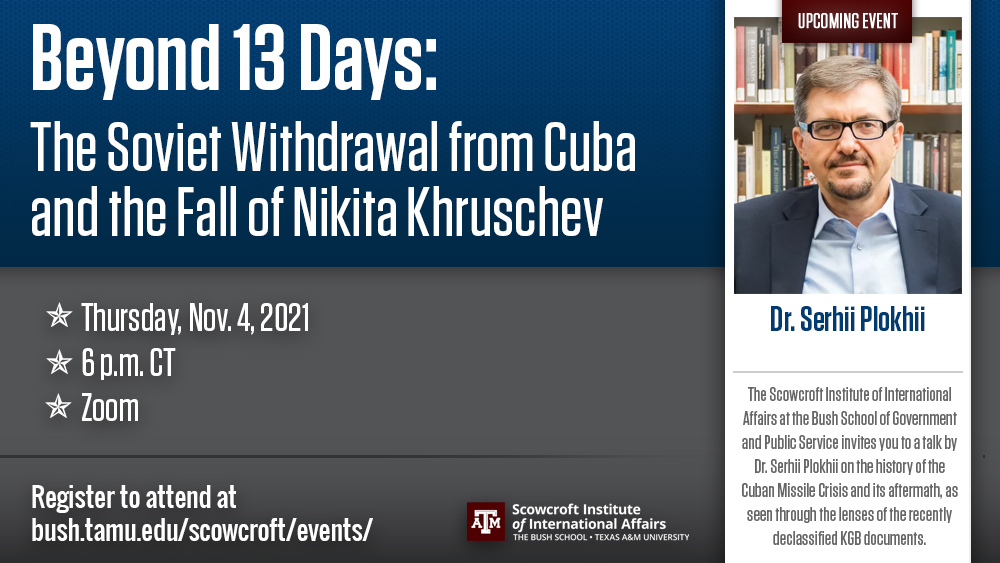
Join the Scowcroft Institute of International Affairs at the Bush School of Government and Public Service for “Beyond 13 Days: The Soviet Withdrawal from Cuba and the Fall of Nikita Khrushchev,” given by Dr. Serhii Plokhii. Plokhii will discuss the history of the Cuban Missile Crisis and its aftermath as seen through the lens of recently declassified KGB documents.
The event will be held on Thursday, November 4, 2021, at 6 p.m. via Zoom. It is open to the public, but registration is required. RSVP for the Zoom information.
Plokhii is the Mykhailo Hruschevsky Professor of Ukrainian History and the Director of the Ukranian Research Institute at Harvard University. A prolific author, historian, and researcher, Plokhii has written many books on the politics of Eastern Europe. His most recent book, Nuclear Folly: A History of the Cuban Missile Crisis (2021), details the mutual distrust, second-guessing, and misinformation on the part of the United States, the Soviet Union, and Cuba that pushed each nation’s principals toward dangerous brinkmanship. Plokhii demonstrates how the world narrowly escaped nuclear disaster.
Other notable works by Plokhii include Chernobyl: The History of a Nuclear Catastrophe (2018), which received the Baillie Gifford Prize for nonfiction, and The Last Empire: The Final Days of the Soviet Union (2015), which was awarded the Lionel Gelber Prize for the best book on international relations and offers a daring revisionist interpretation of the Soviet Union’s final months.
Plokhii obtained his undergraduate degree in history and social sciences from the University of Dnipropetrovsk and his graduate degree from the Russian University of the Friendship of Peoples, with specializations in historiography and source studies. In 1990, he received his habilitation degree in history from Taras Shevchenko National University of Kyiv.

